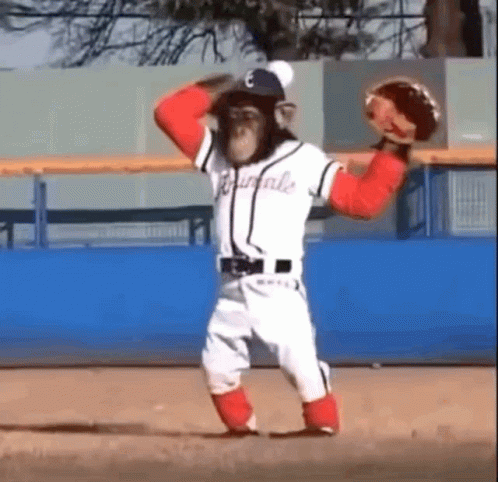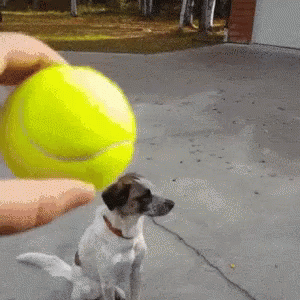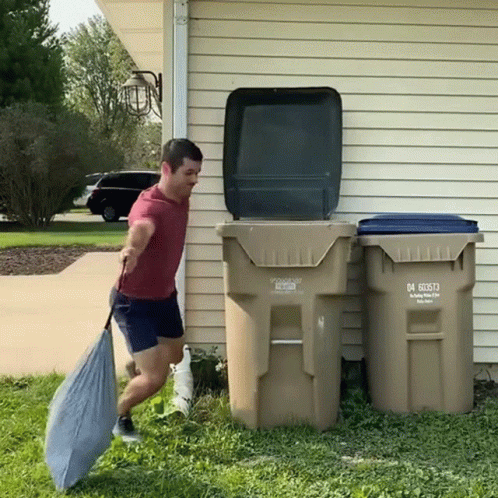Hábiles peloteros/ESP-ENG
Lanzar y atajar pelotas es un deporte en el cual todos participamos, a veces somos más receptores y otras buenos lanzadores. Hacerlo está bien, solo si formamos parte del equipo y hemos acatado las normas; pero cuando no tenemos nada que ver, podemos ignorar la pelota, lo peor que podría pasar es recibir un pelotazo y salir lesionado.

Lo anterior forma parte del juego de la vida donde todos participamos. Una representación metafórica tal como nos la propone @damarysvibra en la siguiente iniciativa.
¿Qué tan familiarizados estamos con este juego para saber cómo y cuándo atajar y cómo y cuándo lanzar? Allí está el meollo de la situación.
Con frecuencia atajamos pelotas que no nos están lanzando a nosotros, metemos la mano, bien sea para asumir una responsabilidad ajena o para recargarnos de trabajo y después quejarnos. Esa falla de vista se repite mucho en algunas madres que le restan independencia a los hijos o a los miembros de su familia, se adueñan de todas las ocupaciones u oficios, les cuesta delegar con la excusa de que nadie lo hace como ellas, se sobrecargan de obligaciones injustificadamente.

En la institución donde trabajé muchos años, el sindicato de obreros tenía tantas reglamentaciones e incluso poder, que era frecuente ver los pasillos con áreas limpias y sucias, intercaladas. Si el obrero a quien correspondía un espacio no asistía, nadie haría su trabajo, si se le sugiría a alguien más hacerlo, este se quejaba al sindicato, que de inmediato tomaba acciones. Había aquí una arbitrariedad amparada por las leyes, que causaba un mal mayor: el aspecto deplorable de la institución. A veces, para beneficio de todos, pudiera ser negociable aceptar pelotas ajenas.
Cuando tenemos control de nuestras jugadas, hacer los lances o rebotes de nuestras pelotas se vuelve algo mecánico, pero cuando ni siquiera conocemos las nuestras, o sea, estamos indiferentes a nuestras responsabilidades, podemos quedar realmente perdidos.
Creo que esto suele verse reflejado cuando estamos pasando por situaciones emocionales, que nos entorpecen el normal desempeño, el no saber de dónde se originan nuestras fallas, hace que se vuelva más lento el proceso de hacernos cargo.
Es común en mucha gente intentar deshacerse de sus problemas lanzando toda la basura emocional sobre otros. Reconocer cuando llegan a nosotros con sus pelotas de enojo, tristeza, ira, o resentimiento, para recibir consuelo, pero cuando les está yendo bien ni siquiera un mensaje, ayuda a que tengamos una mejor respuesta para la próxima vez. Cada quien debe aprender a valerse por sí mismo.

En las relaciones interpersonales hay individuos que son hábiles peloteros, y vuelven ataque todo lo que se les plantea. No tienen nada contra uno, pero en el momento en que se les hace ver alguna situación le dan la vuelta a la misma y la envían de regreso, acusándonos de lo mismo que le hemos hecho ver. En este caso ese tipo de comportamiento refleja una falta de creatividad y dificultad para aceptar críticas.
La pelota por ser redonda se escurre fácilmente, pero si tiene la habilidad de rebotar podrá volver al punto de partida eso es importante para que siempre podamos estar atentos a las que nos conciernen.
Gracias por tu amable lectura.
Mi contenido es original.
Gifs de Peakd.
He utilizado el traductor de Google.

English Version
Throwing and catching balls is a sport in which we all participate, sometimes we are more receivers and other times good throwers. Doing it is okay, only if we are part of the team and have followed the rules; but when we have nothing to do with it, we can ignore the ball, the worst that could happen is to receive a hit from the ball and be injured.

The above is part of the game of life in which we all participate. A metaphorical representation as proposed by @damarysvibra in the following initiative.
How familiar are we with this game to know how and when to save and how and when to shoot? There is the crux of the situation.
We frequently save balls that are not being thrown at us, we reach in, either to assume someone else's responsibility or to overload ourselves with work and then complain. This failure of vision is repeated a lot in some mothers who take away the independence of their children or family members, they take over all the occupations or jobs, they find it difficult to delegate with the excuse that no one does it like them, they become overloaded with obligations unjustifiably.

In the institution where I worked for many years, the workers' union had so many regulations and even power, that it was common to see the hallways with clean and dirty areas, interspersed. If the worker to whom a space corresponded did not attend, no one would do his work; if it was suggested that someone else do it, he would complain to the union, which immediately took action. Here there was an arbitrariness protected by laws, which caused a greater evil: the deplorable aspect of the institution. Sometimes, for the benefit of everyone, it may be negotiable to accept other people's balls.
When we have control of our plays, throwing or bouncing our balls becomes mechanical, but when we don't even know ours, that is, we are indifferent to our responsibilities, we can get really lost.
I think this is usually reflected when we are going through emotional situations, which hinder our normal performance. Not knowing where our failures originate from makes the process of taking charge slower.
It is common for many people to try to get rid of their problems by dumping all the emotional garbage on others. Recognizing when they come to us with their balls of anger, sadness, anger, or resentment, to receive comfort, but when they are doing well, not even a message helps us have a better response for the next time. Everyone must learn to fend for themselves.

In interpersonal relationships there are individuals who are skilled baseball players, and they attack everything that is proposed to them. They have nothing against you, but the moment they are made aware of a situation they turn it around and send it back, accusing us of the same thing that we have made them see. In this case, this type of behavior reflects a lack of creativity and difficulty accepting criticism.
Because the ball is round, it slips easily, but if it has the ability to bounce, it will be able to return to the starting point. That is important so that we can always be attentive to what concerns us.
Thank you for your kind reading.
My content is original.
Peakd gifs.
I have used Google translator.

asi es amiga, muchas veces es necesario entender que todos estamos luchando nuestras batallas, asi que por mas dificil que sea no debemos darle lo malo a los demas, aquellos que nada tienen que ver.
De acuerdo, cada quien tiene lo suyo. Saludos cordiales.
Buenas noches @charjaim. Definitivamente, hay pelotas de pelotas: las rápidas que ni las ves, las bajas que duele, las que ves pasar como el perrito y ni atención le prestamos, pero en todo caso es importante estar atentos a la pelota, no vaya a ser que nos pochen. 🙂
Por cierto, esta pelota me pasó inadvertida, esta no era mi iniciativa, pensé que me quedaba una semana más. 🙃
Saludos que estés muy bien.
Gracias, por tus saludos, la vi como una iniciativa, atajé esa pelota, je,je.
@tipu curate 8
Upvoted 👌 (Mana: 0/75) Liquid rewards.
Esta iniciativa sin duda toca mi corazón porque, como expreso en mi publicación, me vi muy afectada por una situación en la que decidí aceptar pelotas que no eran mías, en lugar de soltarlas. Gracias por tu reflexión y por tan bonitos consejos.